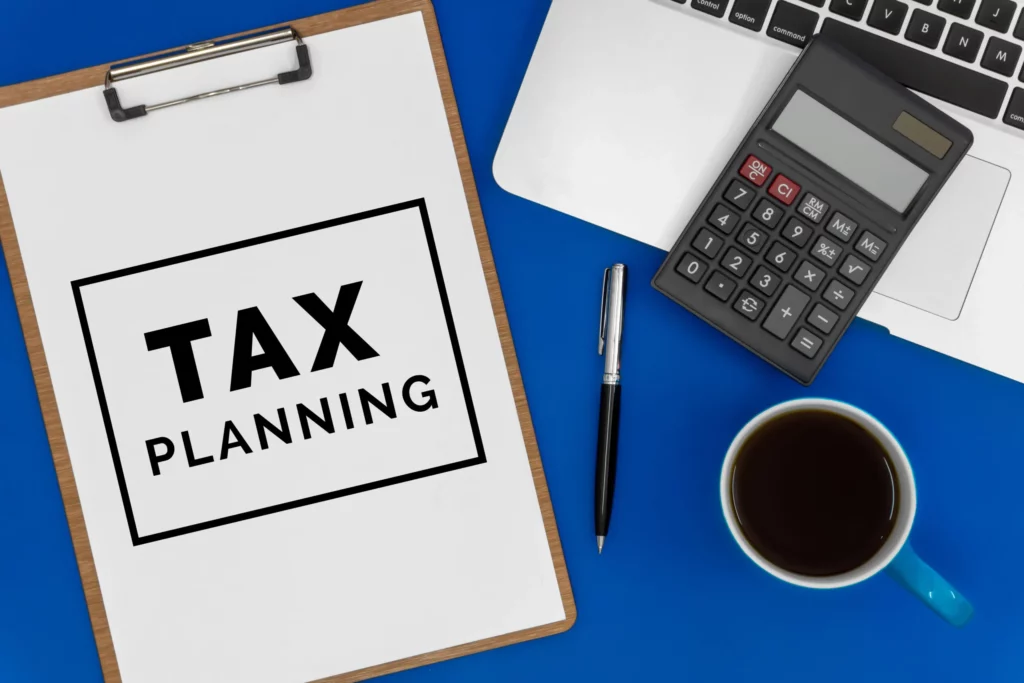Tax efficiency is an essential aspect of managing your finances at every stage of your journey. By understanding the intricacies of tax efficiency, you can ensure that you make the most out of your hard-earned money and minimize your tax burden. In this article, we will explore various strategies that can help you optimize your tax situation at every stage of life.
Understanding Tax Efficiency
Before we dive into specific strategies, let’s first establish a basic understanding of tax efficiency. Tax planning comapny efficiency refers to the ability to minimize the amount of tax you have to pay while maximizing your after-tax returns. This involves strategic planning, making smart financial decisions, and taking advantage of tax-saving opportunities.
The Basics of Tax Efficiency
At its core, tax efficiency revolves around managing your income, expenses, and investments in a way that minimizes your taxable income. This can be achieved through various means, such as taking advantage of deductions, credits, and exemptions, utilizing tax-advantaged accounts, and strategically timing your financial transactions.
One important aspect of tax efficiency is understanding the different tax brackets and how they affect your overall tax liability. The tax brackets determine the percentage of your income that is subject to taxation. By carefully analyzing your income and expenses, you can strategically position yourself within the tax brackets to minimize your tax burden.

Why Tax Efficiency Matters
Tax efficiency is crucial because it directly impacts your overall financial well-being. By optimizing your tax strategy, you can potentially increase your savings, achieve financial goals faster, and enhance your long-term wealth accumulation. Furthermore, being tax-efficient allows you to take advantage of different investment opportunities and allocate your resources more effectively.
For example, let’s say you have a taxable investment account and a tax-advantaged retirement account. By strategically allocating your investments between these two accounts, you can potentially minimize your tax liability. This can be done by placing investments with higher potential tax implications, such as those generating regular income, in the tax-advantaged account, while keeping investments with lower tax implications, such as those with long-term capital gains potential, in the taxable account.
Additionally, tax efficiency can also play a role in estate planning. By understanding the tax implications of transferring wealth to your heirs, you can structure your estate plan in a way that minimizes the tax burden on your beneficiaries. This can involve utilizing strategies such as gifting, charitable contributions, and trust arrangements to optimize the transfer of wealth while minimizing tax consequences.
Building a Foundation: Tax Efficiency in the Early Years
As you start your financial journey, there are specific tax tips and strategies that can set you on the right path.
Starting Your Financial Journey: Tax Tips for Young Adults
For young adults just starting out, understanding tax obligations and making informed decisions is vital. Consider taking advantage of tax-advantaged accounts such as individual retirement accounts (IRAs) or employer-sponsored retirement plans like 401(k)s to reduce your taxable income while saving for the future. By contributing to these accounts, you not only lower your tax liability but also benefit from the power of compounding over time.
Another tax tip for young adults is to ensure you claim all eligible tax deductions, credits, and exemptions. For example, if you’re pursuing higher education, you may be eligible for education-related tax benefits. The Lifetime Learning Credit and the American Opportunity Credit can help offset the costs of tuition and other qualified expenses. Additionally, don’t forget to deduct any student loan interest you’ve paid during the year.
Tax Efficiency for New Families
As your financial responsibilities grow with the arrival of a family, it’s crucial to focus on tax efficiency. One strategy for new families is to take advantage of the child tax credit. This credit can significantly reduce your tax liability by providing a credit for each qualifying child under the age of 17. It’s important to note that the child tax credit is refundable, meaning that if the credit exceeds your tax liability, you may receive a refund.
In addition to the child tax credit, new families can also benefit from dependent care flexible spending accounts (FSAs). These accounts allow you to set aside pre-tax dollars to cover qualified child care expenses. By utilizing an FSA, you can reduce your taxable income and save money on child care costs.
Furthermore, saving for your child’s education is another tax-efficient strategy for new families. Education savings plans, such as 529 plans, offer tax advantages when it comes to saving for higher education expenses. Contributions to these plans grow tax-free, and withdrawals used for qualified education expenses are also tax-free. By starting early and consistently contributing to a 529 plan, you can help alleviate the financial burden of college tuition for your child.
Navigating Mid-Life: Tax Strategies for the Middle Years
As you progress through your career and reach the middle years, there are additional tax strategies to consider. These strategies can help you make the most of your income, plan for retirement, and minimize tax liabilities. Let’s explore some key areas where tax efficiency plays a vital role.
Tax Efficiency During Career Growth
During this stage, career advancement often leads to increased income. While it’s exciting to see your hard work paying off, it’s crucial to remain tax-efficient. One strategy is to maximize contributions to retirement accounts. By contributing the maximum allowed amount to your 401(k) or IRA, you not only save for the future but also reduce your taxable income in the present. This can result in significant tax savings.
Another tax-efficient option is to utilize flexible spending accounts (FSAs) for healthcare expenses. FSAs allow you to set aside pre-tax dollars to pay for eligible medical expenses. By taking advantage of this benefit, you can lower your taxable income and save money on healthcare costs.
Furthermore, exploring tax-advantaged investment opportunities can be beneficial. For example, investing in municipal bonds can provide tax-free income, while contributing to a Health Savings Account (HSA) allows you to save for medical expenses with pre-tax dollars. Consulting with a tax professional can help you navigate these options and ensure you optimize your tax deductions and credits.
Preparing for Retirement: Tax Considerations
As retirement approaches, it’s essential to consider tax implications when planning your financial future. One crucial aspect to understand is the impact of taxes on your retirement savings withdrawals. Depending on the type of retirement account you have, such as a traditional IRA or a Roth IRA, the tax treatment of withdrawals can vary. Knowing the rules and planning accordingly can help you minimize tax burdens in retirement.
Another tax consideration is diversifying your retirement savings across taxable and tax-advantaged accounts. While tax-advantaged accounts like 401(k)s and IRAs offer tax benefits, having some taxable investments can provide flexibility in managing your tax liability during retirement. A financial advisor can help you strike the right balance and create a tax-efficient retirement income strategy.
Lastly, reviewing estate planning strategies is crucial for minimizing tax liabilities for your heirs. By implementing strategies like gifting assets during your lifetime or setting up a trust, you can potentially reduce estate taxes and ensure a smooth transfer of wealth to your loved ones.
By incorporating these tax strategies into your financial planning during the middle years, you can make the most of your income, prepare for retirement, and minimize tax liabilities. Remember, consulting with professionals, such as tax advisors and financial planners, can provide personalized guidance based on your unique circumstances.

Embracing Golden Years: Tax Efficiency in Retirement
As you enter retirement, tax efficiency remains crucial to ensure a comfortable and financially stable life. But what exactly does tax efficiency entail? Let’s delve deeper into this topic and explore some strategies that can help you make the most of your retirement income.
Tax Strategies for Retirees
During retirement, your income sources may change, and it’s important to navigate tax-efficient withdrawal strategies. One approach is to consider minimizing taxable income by withdrawing from tax-advantaged accounts first. By doing so, you can potentially reduce your tax liability and preserve more of your hard-earned savings.
Another aspect to consider is Social Security optimization techniques. Understanding how to maximize your Social Security benefits can have a significant impact on your overall tax situation. By carefully planning when to start receiving benefits, you can potentially minimize the amount of your Social Security income that is subject to taxes.
Furthermore, exploring tax-efficient investment options can also play a role in optimizing your retirement income. By investing in tax-efficient vehicles such as index funds or tax-managed funds, you can potentially reduce the amount of taxes you owe on your investment gains.
Lastly, staying informed about any tax law changes that might impact your retirement income is crucial. Tax laws are subject to change, and being aware of any updates can help you adapt your strategies accordingly and ensure ongoing tax efficiency.
Estate Planning and Tax Efficiency
Effective estate planning is not only about ensuring a smooth transfer of your assets to your heirs but also about minimizing tax liabilities. When it comes to estate taxes, there are various strategies you can employ to reduce their impact.
One such strategy is the utilization of trusts. By establishing trusts, you can potentially protect your assets from estate taxes and ensure they are distributed according to your wishes. Trusts can provide flexibility and control over your assets, allowing you to minimize tax burdens while providing for your loved ones.
In addition to trusts, gifting strategies can also be employed to reduce estate taxes. By gifting assets during your lifetime, you can potentially lower the overall value of your estate, thereby reducing the tax liability for your heirs. It’s important to consult with an estate planning attorney or tax professional to ensure that you navigate gifting strategies in accordance with tax laws and regulations.
Furthermore, charitable contributions can also play a role in maximizing tax efficiency for your estate. By including charitable giving in your estate plan, you can potentially reduce your taxable estate while supporting causes that are important to you.
Navigating the complexities of tax efficiency in retirement and estate planning can be challenging, but with the right strategies and professional guidance, you can ensure that your hard-earned savings are maximized and your legacy is preserved. Take the time to explore your options and consult with experts who can help you develop a comprehensive plan tailored to your unique circumstances.
Advanced Tax Efficiency Strategies
For those seeking to further optimize their tax situation, advanced strategies can be employed.
Investment and Tax Efficiency
Investment decisions can significantly impact your tax liability. Consider tax-efficient investment strategies, such as investing in low-turnover funds, utilizing tax-advantaged accounts for specific investments, and performing tax-loss harvesting when appropriate. Stay informed about changes in tax laws and how they may affect your investment decisions.
Real Estate and Tax Efficiency
Real estate can offer both income and tax benefits if managed tax-efficiently. Explore options such as rental property deductions, 1031 exchanges to defer capital gains taxes, and utilizing real estate investment trusts (REITs) for tax-advantaged exposure to the real estate market. However, always consult with professionals who specialize in real estate tax matters to ensure compliance and maximize tax efficiency.
By incorporating tax efficiency strategies at every stage of your financial journey, you can optimize your overall financial well-being and keep more of your hard-earned money. Remember, tax laws change, so it’s essential to stay informed and consult with professionals when necessary. With the art of tax efficiency on your side, you can navigate your financial journey with confidence and reach your goals more efficiently.
Related: Long-Term Strategies for Sustainable Financial Success








